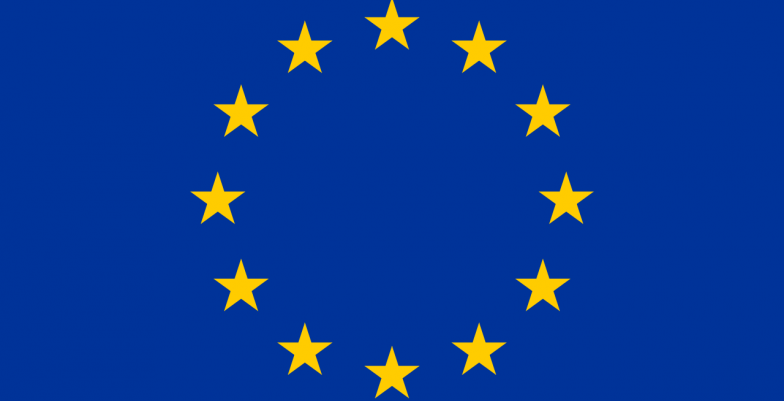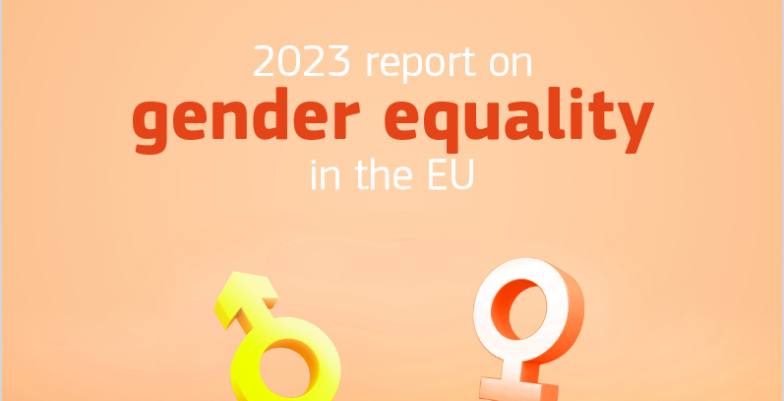RELATIONS WITH THE EU
Political Relations & Human Rights
Useful information about China's political relations and human rights matters.
Political Relations
The EU and China are comprehensive strategic partners. Each year, the leaders of EU and China meet in the format of the EU-China Summit (last held 1 April 2022). The Summit is prepared through a network of bilateral high-level dialogues. These include the EU-China Strategic Dialogue between the EU High Representative/Vice President and the State Councillor and Minister of Foreign Affairs of China. The dialogue prepares the Summit discussions on EU-China bilateral relations as well as on external affairs.
On a day-to-day basis, the EU Delegation in Beijing works closely together with Member States’ Embassies to defend EU interests and values and engage with Chinese counterparts to implement concrete results.
The EU aims to reinforce its engagement with China on foreign policy and security issues and will continue to:
- Encourage China to mobilise its diplomatic and other resources to support international security; contribute to peace and security in Asia as well as in the EU's neighbourhood in line with international law.
- Ensure freedom of navigation and overflight in the East and South China Seas; settle disputes peacefully and in accordance with the rule of law, in particular the United Nations Convention on the Law of the Sea (UNCLOS).
- Engage with China to address global challenges such as climate change and biodiversity, food security, debt relief, humanitarian assistance and global health; seek common ground with China on disarmament and non-proliferation.
In 2019, the EU High Representative and the European Commission adopted the Joint Communication EU-China: A Strategic Outlook, which recognised that the balance of challenges and opportunities presented by China to the EU has shifted and as a result set up a three-layered framework for advancing EU-China relations. This framework recognises China simultaneously as a negotiation partner, an economic competitor and a systemic rival. The policy approach as set Strategic Outlook was reaffirmed by EU Member States with the October 2020 European Council conclusions and on subsequent occasions.
In April 2021, the Council adopted Council Conclusions on the EU Strategy for Cooperation in the Indo-Pacific. They demonstrate the EU’s recognition of the growing importance of the region and its commitment to reinforcing its role in cooperation with its partners there. This renewed commitment to the region is inclusive of all partners wishing to cooperate with the EU. The strategy is deliberately pragmatic, flexible and multi-faceted, allowing the EU to adapt and build its cooperation according to specific policy areas where partners can find common ground based on shared principles, values or mutual interest. Since September 2021, the EU has a Special Envoy for the Indo-Pacific.
Human Rights
The EU adheres to international rules and norms, and respect for human rights as set out in the Charter of Fundamental Rights of the European Union. The Principles of Engagement set out in the strategy state that:
"The EU's external action is governed by the principles which have inspired its own creation: democracy, the rule of law, human rights and respect for the principles of the UN Charter and international law. These principles are reflected in the Chinese constitution and in the international instruments that China has signed. The protection of human rights will continue to be a core part of the EU's engagement with China. The EU believes that treating human beings with dignity and respect is essential if citizens are to fulfill themselves and flourish creatively, and is good for the stability and security of Chinese society and the world order.”
The EU is committed to promoting the universality of human rights and to improving the human rights situation in China in an active and sustained way. In doing so, constructive dialogue and outreach remain the European Union's preferred means of action.
The EU and China discuss human rights during high-level dialogues and under a dedicated Human Rights Dialogue. The EU-China Human Rights Dialogue was established in 1995 and has been meeting ever since. However, travel restrictions imposed in response to the Covid-19 pandemic have created a new set of challenges to the continuation of this dialogue.
Notwithstanding the significant differences between the EU and China concerning human rights, both sides are committed, as agreed in the EU-China 2020 Agenda, to engaging on these issues and to conducting open and frank discussions. The Human Rights Dialogue allows the two sides to convey their concerns about issues such as the rule of law, freedom of expression, freedom of religion and belief, freedom of assembly and association, the death penalty, prevention of torture, the situation of human rights defenders, the rights of persons belonging to ethnic and religious minorities, social integration and other issues relating to social, cultural, civil and political rights.
The dialogue, together with public diplomacy and outreach efforts by the EU and its Member States, has contributed to some positive results. The EU is determined to continue to work with China, building on China's own Human Rights Action Plan, to promote respect for international human rights obligations.
The EU is committed to using its co-operation programmes to promote human rights in China. In this regard, it supports a number of projects to promote the universal values of human rights in China, including through projects specifically funded under the European Instrument for Democracy and Human Rights (EIDHR). It also supports seminars and other activities that allow European and Chinese experts to exchange views and experiences.
EU-China High-Level Strategic Dialogue
High Representative for Foreign Affairs and Security Policy/Vice-President Josep Borrell and the Director of the Office of the Central Foreign Affairs Commission and Minister of Foreign Affairs of China Wang Yi held the 12th EU-China Strategic Dialogue on 13 October 2023 in Beijing.
They discussed bilateral relations between the European Union and China in view of the upcoming EU-China Summit.
The main international and regional issues included the latest unfolding events in the Middle East, which took a central place in the dialogue. In addition, they discussed Russia’s war of aggression against Ukraine and the situation in Afghanistan.
They also touched upon global challenges like climate change, global health, and debt management.
Watch the video:
Links to press releases:
- China: Remarks by High Representative/Vice-President Josep Borrell at the joint press conference of the EU-China Strategic Dialogue
- China: Speech by High Representative/Vice-President Josep Borrell at Peking University
- Press remarks by High Representative Josep Borrell after concluding his visit to China




